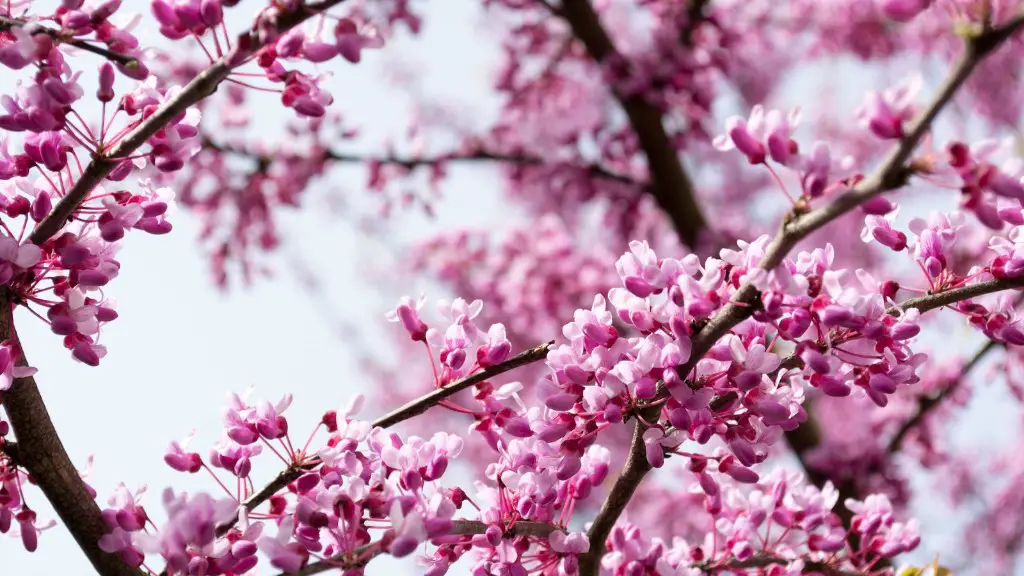The lemon tree is a popular plant in many homes and gardens. But, when winter comes, some people wonder if their lemon tree will survive. Here are some things to consider to help your lemon tree survive winter.
Most lemon trees will not survive if left outdoors during winter, especially if the temperature falls below freezing. However, some lemon tree varieties are more cold hardy and can withstand occasional light frosts. If you live in an area with colder winters, it is best to grow your lemon tree in a pot that can be brought indoors during the coldest months.
How do you keep a lemon tree alive in the winter?
Citrus trees are a great addition to any home, and they can thrive indoors with the proper care. In winter, it is important to lower the room temperature to 58-68 degrees to help the tree go semi-dormant. Additionally, consider adding a supplemental light source and rotating the plant regularly. Fertilize monthly and water properly. Finally, keep an eye out for pests.
Most citrus trees can handle a light frost, but any temperature below 32°F can be detrimental to its health. Keep your tree inside until you are sure the last spring frost in your area has passed, and the average nightly temperature is above 40°F before preparing to move your citrus tree outside.
What is the lowest temperature lemon tree can handle
If you live in an area with cold winters, you’ll need to take special care of your Meyer lemon tree. The tree is very cold hardy and can withstand temperatures down to about 20 degrees. However, if the temperature in your area gets colder than that, your tree will need to be planted in a container and brought inside when the temperature drops.
You can protect your tree and the fruit left on it from freezing by covering it with a blanket or heavy tarp. To do this, build tripods of light lumber or PVC pipe around the trees and cover them with frost cloth or tarps on the coldest nights.
Will lemon tree come back after freeze?
Citrus trees are very resilient and can often recover from freezing temperatures, but there are a few factors that need to be considered when deciding on a course of action. The time of year, the condition of the tree, and the weather conditions after the freeze will all play a role in the tree’s ability to recover. In some cases, it may be necessary to prune the tree to remove damaged branches, but with proper care, most citrus trees will be able to bounce back from a freeze.
Citrus trees need a lot of sunlight to produce fruit, so it’s important to place them in a location that gets 8-12 hours of direct sun exposure each day. In the spring, after the danger of frost has passed, you can move your citrus tree outdoors. Just be sure to bring it back indoors in the fall, before the first frost.
Where do I put my potted lemon tree in the winter?
Citrus trees are beautiful, but delicate plants. They need special care to thrive and produce fruit. Despite being classed as ‘indoor trees’, they don’t like direct heat and central heating can dry out the air where humidity is needed. Citrus trees flourish in places with good air circulation and where they can receive plenty of light, so a porch area for example would be perfect.
Lemon trees are a rewarding addition to any indoor space. With sweet-smelling flowers, glossy foliage, and tart, tasty fruit, these trees provide year-round enjoyment. Container lemon trees can be grown indoors in any climate, making them a perfect option for those without a lot of outdoor space. With a little attention, your lemon tree will thrive and provide you with fresh lemons for years to come.
How do you winterize citrus trees
The best way to protect your trees from a freeze is to water them deeply several days before the freeze is expected. This will help to insulate the roots and prevent them from being damaged by the cold. You can also wrap the trunks of the trees with a lightweight material to add an extra layer of protection. If you have small trees, you may also want to consider banking soil up around the trunks to help insulate them. On sunny or milder days, be sure to vent the material so that the trees don’t get too warm.
warmer temperatures in spring are the perfect time to move your indoor plants back outside! Many fruits, like Meyer lemons, do especially well in these conditions. Make sure to give your plants plenty of water and sunlight for best results.
Can a potted lemon tree go outside?
If you plan on putting your citrus in pots outdoors, make sure to do so in a sheltered sunny position when temperatures have increased. Keep some fleece handy in case of sudden cold nights in early summer. Low temperatures can inhibit flowering and may cause damage or even death.
In winter, it’s important to allow your citrus tree to remain in dormancy by only watering it once every 3-4 weeks. This will help the tree to build up energy for next year’s growth spurt.
Do potted lemon trees go dormant
Citrus trees need light and humidity during the winter, although their growth will slow during this time. Make sure to provide your citrus trees with these conditions to prevent them from going dormant.
Lemon trees are a great low-maintenance plant that can be easily grown indoors. All they need is 6-8 hours of direct sunlight each day, making them perfect for placing in front of a south-facing or sunny window. With proper care, these trees can thrive and produce an abundance of lemons for you to enjoy!
Will a Meyer lemon survive a freeze?
It’s best to pick fruits from trees before a deep freeze is expected. mature fruits will be damaged at 28 degrees, short frosts will not damage them.
Composted coffee grounds are an excellent source of nitrogen for lemon trees. They can help improve the tilth of the soil and speed up the growth and development of the tree. However, it is important to make sure that the coffee grounds are fully decomposed before using them.
How do you care for an indoor potted lemon tree
Lemons are one of the most popular citrus fruits and are used in a variety of dishes. The lemon tree is originally from Asia and is thought to have first been cultivated in northeastern India or northern Burma.
Lemon trees need a lot of bright light in order to produce fruit. The optimal place for a lemon tree would be in a south-facing window. Without enough light, the tree will not produce flowers, and therefore will not produce fruit.
Lemon trees are a type of citrus tree that usually lives for 30-50 years, although indoor potted trees tend to have shorter lifespans than trees planted in the ground outdoors. In good conditions, lemon trees can grow to over 100 years old. Lemon trees need full sunlight and well-drained soil to thrive. They are sensitive to cold weather and should be protected from frost. With proper care, lemon trees can provide delicious fruit for many years.
Final Words
It depends on the region in which the lemon tree is growing. If the tree is growing in a region with cold winters, it is unlikely that the tree will survive.
There is no definitive answer to this question as it depends on a number of factors, including the type of lemon tree, the climate, and the care taken to protect the tree during winter. However, in general, lemon trees are not as cold-hardy as other fruit trees and may not survive if temperatures drop below freezing for an extended period of time.




